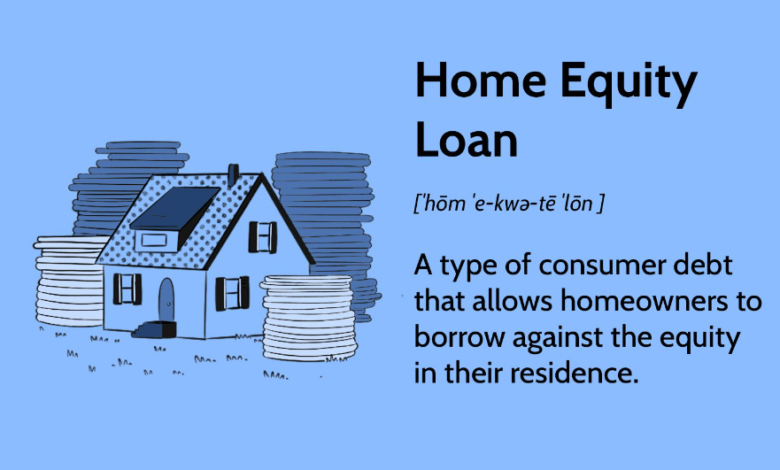
The interest rate on a home equity loan is typically a percentage of the loan amount.
What is a home equity loan?
A home equity loan is a type of loan in which the borrower uses the equity of their home as collateral. Home equity loans are typically used for home improvements, to pay off debt, or to finance major expenses such as college tuition.
The interest rate on a home equity loan is usually lower than the interest rate on a credit card or personal loan. This is because the loan is secured by the equity in your home. If you default on the loan, the lender can foreclose on your home and sell it to recoup the loan amount.
Because home equity loans are secured by the equity in your home, they typically have lower interest rates than unsecured loans. However, if you default on the loan, the lender can foreclose on your home and sell it to recoup the loan amount.
How do home equity loans work?
Equity is the difference between the home’s value and the outstanding balance of any mortgages against the home.
For example, if a homeowner has a home valued at $250,000 and owes $150,000 on their mortgage, they have $100,000 in home equity. They can use that equity to take out a home equity loan for up to $100,000.
The interest rate on a home equity loan is usually lower than the interest rate on a personal loan or credit card. This is because the loan is secured by the equity in the home, which the lender can seize if the borrower defaults on the loan.
Home equity loans can be a great way to finance a major home improvement project, pay for college tuition, or consolidate other debts. But they also come with some risks.
And if you can’t make the payments on the loan, you could lose your home to foreclosure.
What are the benefits of a home equity loan?
Equity is the difference between the home’s appraised value and the outstanding balance of all liens on the property. The loan amount is generally limited to 80%–85% of the equity value.
A home equity loan can be a great way to finance home improvements, consolidate debt, or pay for large purchases. The interest rates are often lower than those of other types of loans, and the interest may be tax deductible.
Before taking out a home equity loan, it’s important to understand the risks. If you default on the loan, the lender could foreclose on your home.
Here are some of the benefits of a home equity loan:
-The interest rates are often lower than those of other types of loans.
-The interest may be tax deductible.
-You can use the loan for a variety of purposes, including home improvements, debt consolidation, or large purchases.
-A home equity loan can provide a way to finance a major purchase or project without having to sell your home.
-If you have equity in your home, you may be able to get a loan even if you have bad credit.
- What are the risks of a home equity loan?
But what are the risks of a home equity loan?
If you’re considering a home equity loan, you should be aware of the following risks:
You could lose your home if you can’t repay the loan.
If you default on your home equity loan, the lender could foreclose on your home. This means you could lose your home and damage your credit score.
Your home equity loan could be more expensive than you think.
Home equity loans often have closing costs, fees, and other expenses that can add up. Make sure you understand all the costs associated with your loan before you sign any paperwork.
You may not be able to get a home equity loan if you have bad credit.
If you have bad credit, you may not be able to get a home equity loan. Lenders typically require good to excellent credit scores for home equity loans.
You could end up with a higher interest rate than you expected.
Home equity loan interest rates can vary, so make sure you understand what the interest rate will be before you sign any paperwork.
How can I get the best rate on a home equity loan?
This type of loan is also sometimes called a second mortgage. A home equity loan usually has a fixed interest rate, which means that the interest rate stays the same for the life of the loan. A home equity loan can have a term of anywhere from 5 to 30 years.
The interest rate on a home equity loan is usually lower than the interest rate on a credit card or personal loan. That’s because your home equity loan is secured by your home, which is an asset. The interest rate on an unsecured loan, such as a personal loan, is usually higher than the interest rate on a home equity loan.
If you’re considering a home equity loan, there are a few things to keep in mind. First, you need to make sure that you have enough equity in your home to qualify for the loan. Second, you need to make sure that you can afford the payments. Third, you need to be aware of the fees and closing costs associated with home equity loans.
Here are a few tips to help you get the best rate on a home equity loan:
Shop around.
When it comes to home equity loans, you’ll find that rates can vary significantly from lender to lender. It’s important to compare rates from multiple lenders before you decide on a loan.
Check your credit score.
Your credit score is one of the factors that lenders will consider when determining your interest rate. If your credit score is high, you’re more likely to qualify for a lower interest rate.
Consider a shorter term.
The interest rate on a home equity loan is usually lower if you have a shorter loan term. That’s because the lender is taking on less risk. However, you’ll also have to make higher monthly payments.
Ask about fees and closing costs.
Home equity loans come with fees and closing costs. These can add up, so it’s important to ask about them in advance.
Shop around for the best deal.
When you’re looking for a home equity loan, it’s important to
Conclusion
A home equity loan is a type of loan in which the borrower uses the equity of their home as collateral. The rate on a home equity loan can be fixed or variable, and it can be used for a variety of purposes, such as home improvement or debt consolidation.




